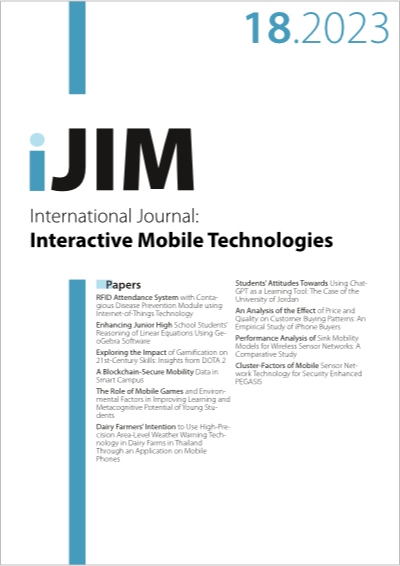Enhancing Junior High School Students’ Reasoning of Linear Equations Using GeoGebra Software
DOI:
https://doi.org/10.3991/ijim.v17i18.41441Keywords:
GeoGebra, linear equation, mathematical reasoning abilityAbstract
The important role of visual representations in supporting students’ learning of geometry concepts and their reasoning is well established. GeoGebra is dynamic and interactive software that can assist students in exploring mathematical concepts effectively. This research aims to examine the effectiveness of GeoGebra in enhancing eighth-grade students’ mathematical reasoning on the topic of linear equations. The study used a quantitative approach with a non-equivalent control group design by applying GeoGebra. Data were obtained through interviews and a mathematical reasoning ability test. The interviews were analyzed descriptively, and the reasoning test was analyzed using dependent t-tests. The findings revealed that GeoGebra significantly helps students’ to have a better understanding of linear equation properties, such as the gradient of parallel, coincident, perpendicular, and intersecting lines. The mathematical reasoning test revealed that learning with GeoGebra can improve students’ mathematical reasoning skills, specifically in linear equations. Teachers are encouraged to incorporate GeoGebra, as its visualization function enables students to explore linear equation properties.
Downloads
Published
How to Cite
Issue
Section
License
Copyright (c) 2023 Yerizon Yerizon, Arnellis Arnellis, Fridgo Tasman, Wanty Widjaja

This work is licensed under a Creative Commons Attribution 4.0 International License.



